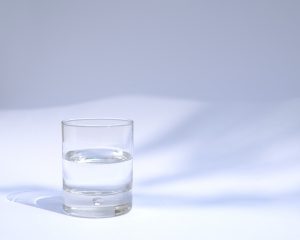Surviving the Holidays with a Vestibular Disorder
The end of the year signals that we get to start getting excited to see all of our loved ones again! I know that since we have been stuck in a pandemic for SO long now, handling big events might need a little refresher. Holiday parties, cookie decorating get-togethers, and Thanksgiving day events are a lot to handle. This may be your first year managing the holidays with dizziness, or you may have years of experience. No matter where you are in your dizzy-journey, here are a few tips and tricks to help get you through the holiday season.
Check-in With Yourself
You know your body better than anyone. You determine where you go, what you do, who you see, and what you eat. If you want to go to a get-together with your friends, check in with yourself beforehand. How are you feeling? How long would you like to stay? Is there anything you need to do or bring to make your time there easier or more manageable? Setting ground rules and boundaries for yourself is incredibly important, and I absolutely recommend taking the time to reflect on your needs before you start getting together with others.

Bring Vestibular-Friendly-Foods
As a person with a vestibular disorder, it’s more than likely that you stick to some sort of diet. Even if it is not strict, you can never be too sure that there will be something you can eat where you are going. It’s really important to your vestibular system, especially with Vestibular Migraine or Meniere’s Disease, that your blood sugar stays constant, instead of having chronic fluctuations. Bring something you can keep in your bag to snack on, or bring a dish to the get-together you can share with everyone. That way, you can be sure there’s at least one thing you will be able to eat!
Stay Hydrated
Your brain is 75% water, and your vestibular system is largely water as well. Hydration is an absolute key to success when it comes to managing your vestibular disorder. If you are dehydrated, even without a vestibular disorder, you can become dizzy and feel off balance. So, if you do have a vestibular disorder it’s even more important to be sure you are getting enough water! Bring a water bottle with you and ask where you can fill it up. You won’t have to dirty a dish for your host, and you can be sure you’re getting enough to drink.
What to do About Alcohol
Avoiding alcohol with a vestibular disorder is frequently a given. However, you don’t have to avoid it 100% if your attacks are relatively under control. Some alcohols are more suitable for vestibular disorders than others, and I recommend giving it a try before you get to a party, but there are options for you! The alcohols that tend to be the least problematic are vodka, tequila, and dry white wine.
People who drink wine often have attacks due to the high levels of sulfites in the liquid. It’s almost impossible to find a wine with low enough levels for people with migraine and other inflammatory sensitivities, so PureWine has come up with a few solutions. These wine wands are easy to use. You just pop one in your glass of wine, wait a few minutes, and then you can drink. Be sure to follow the directions or you will not get the benefits. PureWine also has an option you can use as a pour spout as well to purify it upon pouring it from the bottle.

Be sure to drink AT LEAST 1 glass of water (8-10 oz) for every drink you have.
Stick to a Schedule
Sticking to a schedule is of the utmost importance when you have a migraine brain or any sort of dizziness. During the holidays especially, because there are so many events, it’s even more important. Try your best to plan which events you have been invited to, how many you actually want to participate in, how long you want to go to said event, and how much energy it may take up. Imagine yourself as a cup. Before chronic illness, you may have been a pint glass, but with a chronic illness, you’re more like a small water glass. With a chronic illness, our cups empty more easily than before chronic illness and stay empty without adequate rest. Continue to strengthen your body regularly, sleep consistently, fuel your body appropriately with food and water, and rest when you feel like you need it.
Even if you’re a glass-half-full kind of person, it’s more difficult to physically fill that glass than it used to be. Manage your time, sleep, exercise, and events wisely this season for more successful holiday parties.

Decrease External Stimuli & Pack Accordingly
Holiday lights & music combined with excited, loud humans can make for an overstimulating environment. There are quite a few things to help this
- Migraine Shields: These glasses will help filter out the straining blue light that impacts your vestibular symptoms. They are made by a person with migraine, for migraineurs. I like them because they’re the lightest colored compared to other brands while filtering the blue light that affects you. This is different than wearing blue light glasses you get off of Amazon because it will only filter out the harmful blue light, rather than all of it. (code vertigodoc20 for 20% off your order!)

- Earplugs: If you’re going to a particularly loud event, where maybe there are will be significant echoing, a live band, or many people, consider packing earplugs. These ones are designed to decrease the amount of noise, without distorting the actual sounds. So you’ll be able to hear people around you speak, but it will be less stimulating and easier to listen to.
- Cane: A foldable cane, one that turns into a seat, or just a regular straight cane can help you to keep your balance inside a room where you may feel overstimulated.
- Hat: Any hat you feel comfortable wearing, especially during outside events or ones with strobe-like lights inside will help to decrease the amount of stimulus entering your system.
Set yourself a stopping point
Always try to decide where you’re going to stop before you start. If your goal is to bake holiday cookies, run errands, and get some work done in one day, that’s a great goal. But, if halfway through you’re feeling like you might be too exhausted to do so, quit while you’re ahead. It’s so much easier to fill your proverbial cup when it isn’t running on empty than it is to fill the cup if you’ve drained it and taken extra energy. I
Have you ever noticed yourself getting into this pattern? After a relaxing weekend, Monday comes around and you run errands like you are the queen of the world and can do anything. Then, on Tuesday you’re so exhausted you can barely get out of bed – so you rest. Then, on Wednesday you feel pretty good, so you get as much done as you can, and Thursday you’re so exhausted you can hardly make it to the bathroom or kitchen? This is a cycle that happens because there is not enough energy conservation going on. Expending all of your energy and then some on Monday makes it so you can’t do anything on Tuesday. This is not a good use of your time. Instead, try doing half of Monday’s activities on Monday and half of them on Tuesday. I would be willing to bet you’ll spend less time in bed, more time doing the things you love, and actually get more done throughout your week overall.
Following these tips will help you get to more events, decrease the amount of recovery you will need to make, and improve your overall quality of life. Never be afraid to excuse yourself from the party when you need to, and conserve your energy for later when you can!



